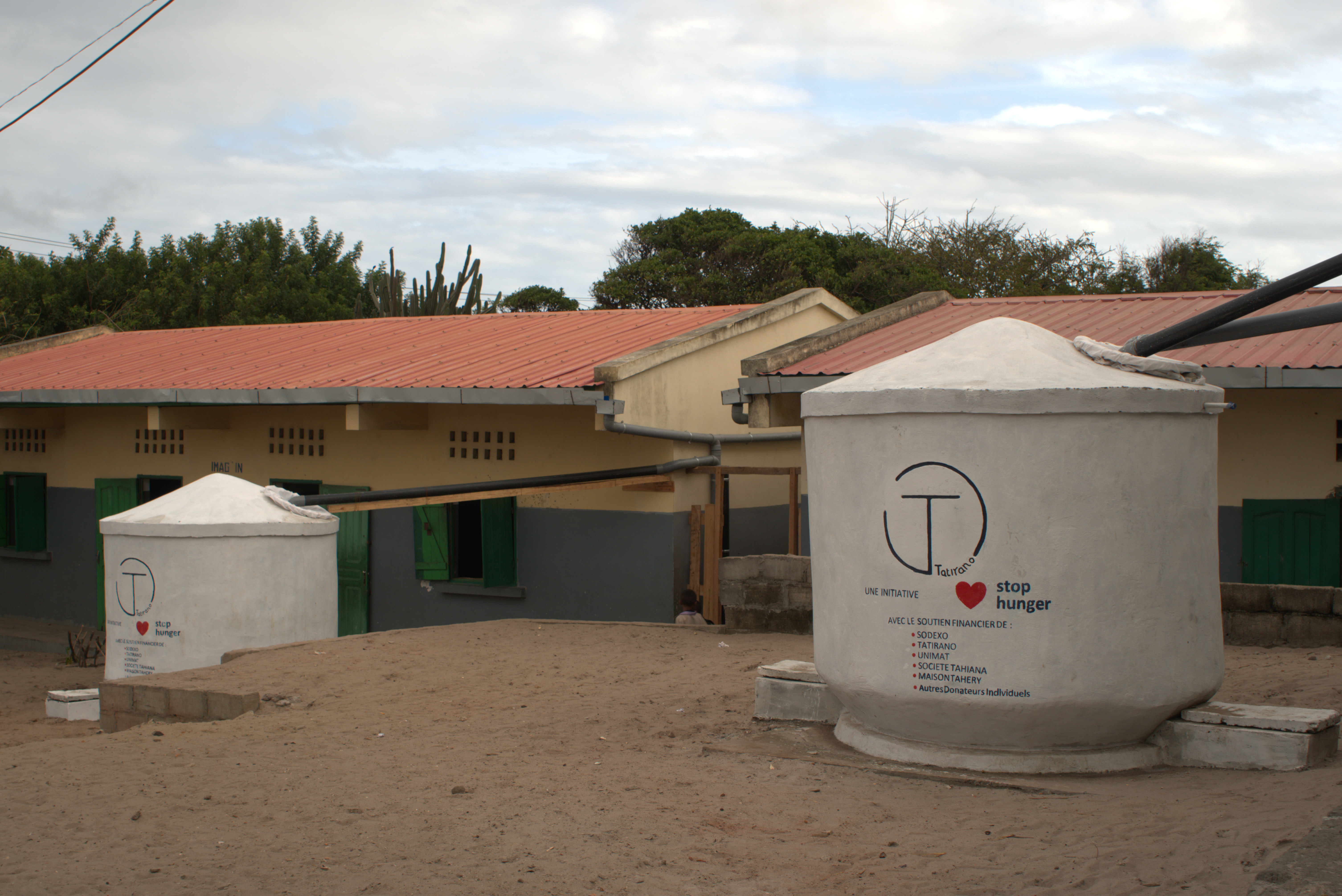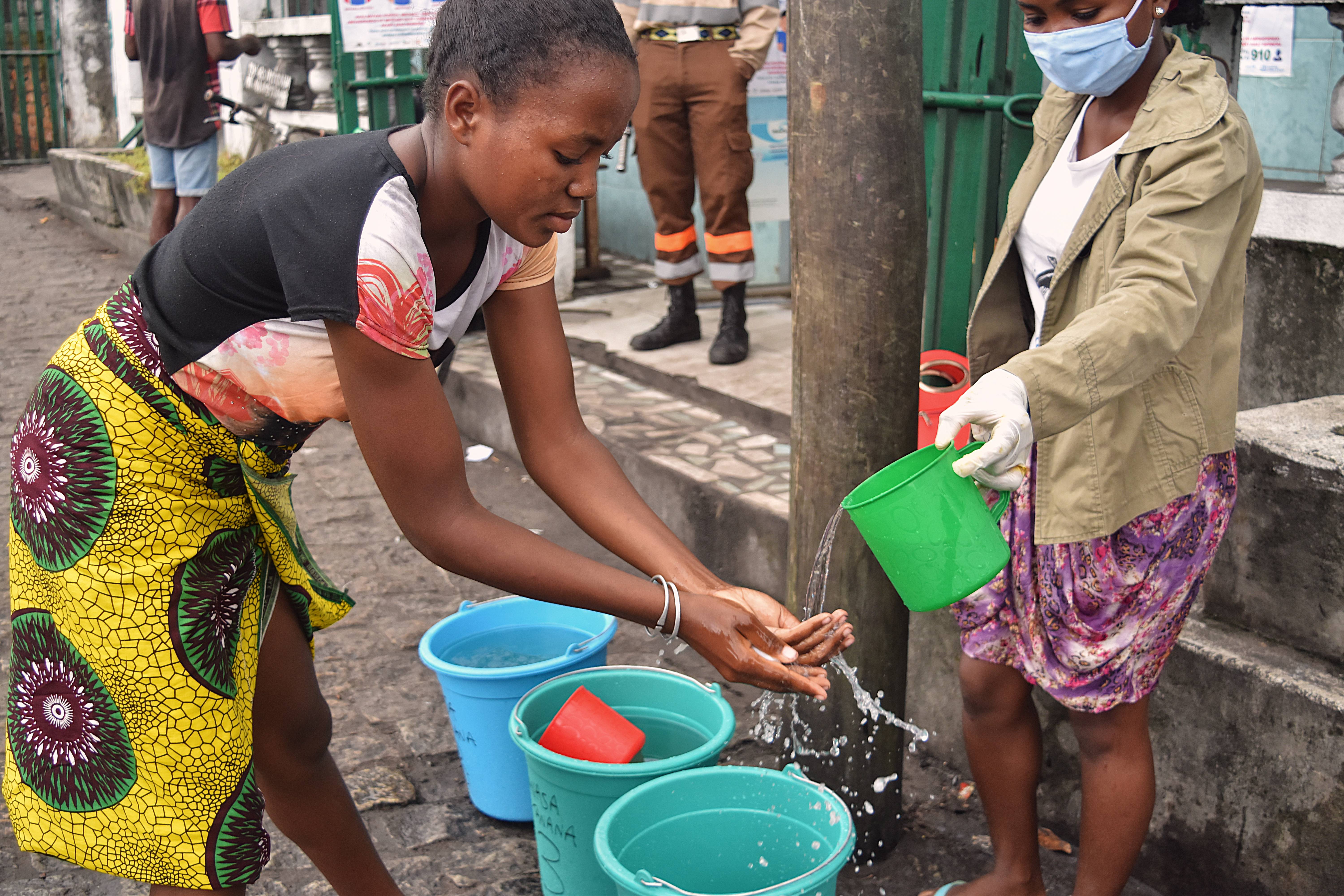Ny Toetrandro:
Talata: Misy orana be
Alarobia: Misy orana be
Alakamisy: Misy orana be
Zoma: Misy orana be
This was the automated text forecast I awoke to on Monday morning. It’s written in Malagasy and is sent to all our female Tatirano Agents who manage water points across the south of Madagascar:
misy means there is; orana means rain; be means big.
Fortunately we work in rainwater harvesting and this message meant we started the week on a high as all of our water systems were filling nicely and providing schools, hospitals and communities with safe water.
My momentary smugness faded quickly as I suddenly felt sorry for the 77 handwashing station managers and water teams who would likely be working a soggy shift that morning. Hopefully they had found some shelter under neighbouring market stalls.

Our small social enterprise called Tatirano usually specialises in simple rainwater harvesting systems to get reliable clean water to people that don’t have it. However within about 10 days of the arrival of country-wide rules, restrictions and curfews to curb Covid-19 in March, we shifted to handwashing.
The campaign started with just 16 handwashing stations in Fort Dauphin, a small town of about 90,000 people in the southeast of Madagascar. Out of work primary school teachers (due to Covid), most of whom were women, managed three buckets, two cups and some soap. Buckets were refilled by a team of enthusiastic young guys hauling a 300-litre bladder tank from rainwater tank to handwashing stations throughout the market. Working a 5-hour shift rotation scheme, the team of 53 people began recording about 3,300 handwashes each day.
The number of handwashes blew us away. We couldn’t believe that so many people wanted to wash their hands in the market, simply as part of their daily routine.
For years NGOs and Governments have been working tirelessly to create the perfect hygiene education classes in schools, in communities, in health clinics. Who knew that all we needed to do was ensure that the ingredients for a good handwash were readily available: clean water and soap! (Of course hygiene awareness is hugely important and more recently this has been aided by metre-high loud-speakers driven around town slowly whilst blasting out Covid public health measures – because how else to you grab everyone’s attention?) Regardless, it was a massive win for us to see so many people wanting to wash hands – an activity previously reserved for the lucky population with soap and water.
So we continued to expand, establishing more stations around Fort Dauphin and partnering with GIZ PrAda in the southeast of Madagascar to reach two other towns.
As of Friday 2 October, 61 stations across three towns in three regions have provided access to basic handwashing facilities in marketplaces. The project provides work for 210 people in a time void of international movement and tourism. On that “clean Friday” with all the stations up and running, we logged 14,503 handwashes in one day.
To date we have logged: 685,938 handwashes with water and soap in marketplaces across the southeast of Madagascar.

In a year full of 2020isms, and especially on Global Handwashing Day, I think it’s important we first and foremost recognise the incredible work the health sector is doing to limit this pandemic and save lives both as doctors in hospitals and as community health workers sharing information. During a 24 hour trip returning from one of our handwashing towns, I saw small shops and market stalls in extremely remote rural villages all along the route with jerrycans and taps, and most of the time, soap too! This is a massive success in public health advocacy and awareness and something we as the sector should be proud of. But there is a long way to go.
Before the pandemic, handwashing wasn’t a global problem and didn’t gain media coverage, despite over 800 children dying every single day from diarrhoea related directly to poor hygiene and dirty water – this is more than malaria, AIDS and measles combined. Before this pandemic, our handwashing stations were not installed and these hundreds of thousands of handwashes were not taking place simply because the facilities were not readily available. The demand is there, the means are not.
This is a huge, tangible and definable deficit in public health service provision that we are all failing to rectify rapidly enough. Let us use this pandemic and this tiny handwashing campaign in southeast Madagascar to demand better of ourselves and our Governments. Let us use this splash of positivity in this bizarre, sad, unprecedented year as an opportunity to champion handwashing as a public health priority for years to come.
You can learn more about Tatirano’s work by visiting their website or following them on Facebook.